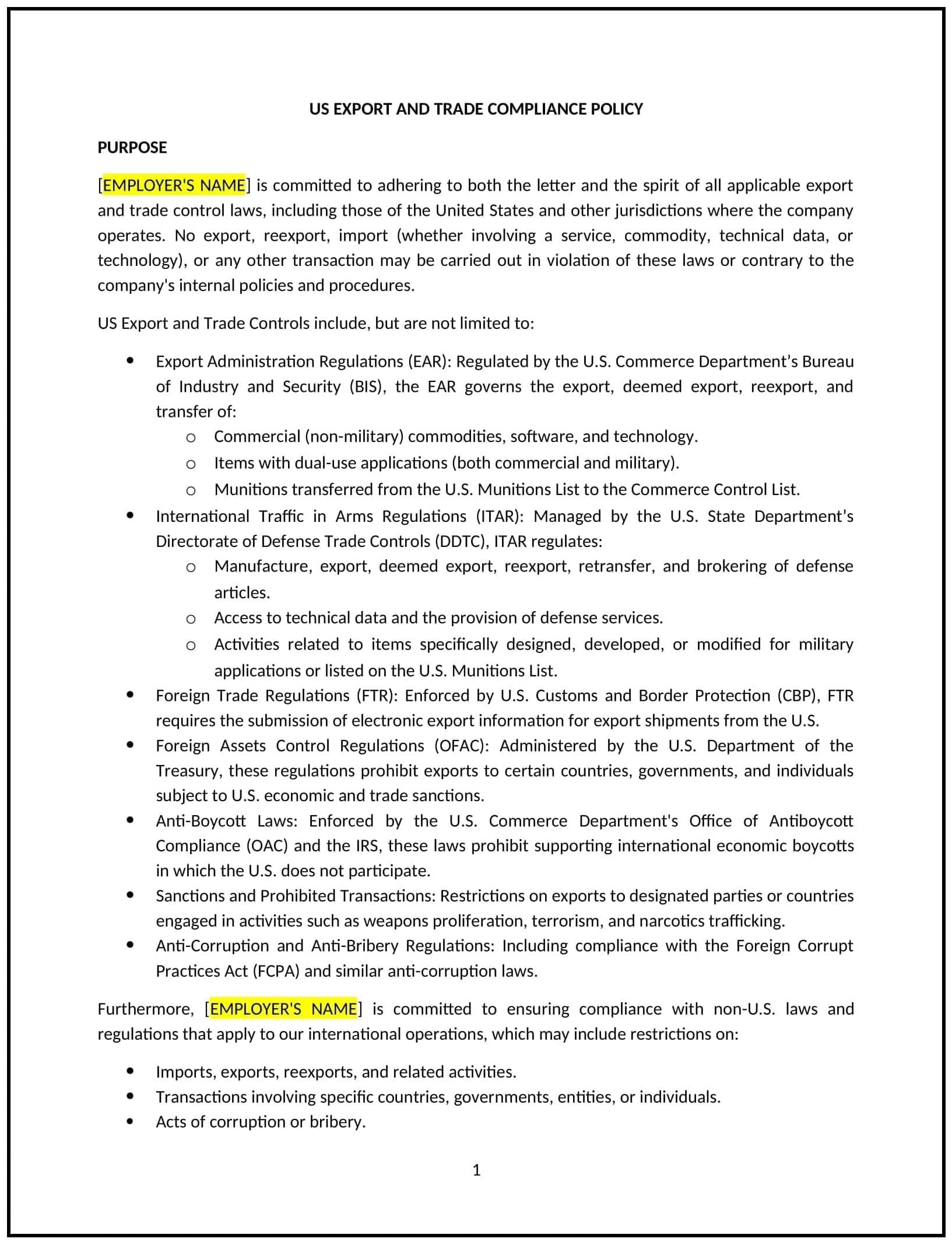US export and trade compliance policy (Oregon): Free template
Got contracts to review? While you're here for policies, let Cobrief make contract review effortless—start your free review now.

Customize this template for free
US export and trade compliance policy (Oregon)
This US export and trade compliance policy is designed to help Oregon businesses navigate the complexities of international trade regulations. The policy outlines procedures for ensuring that exports comply with applicable laws and addresses the responsibilities of businesses in preventing violations.
By implementing this policy, businesses can manage trade risks, protect against penalties, and promote lawful export practices.
How to use this US export and trade compliance policy (Oregon)
- Identify applicable regulations: Specify the federal and state export laws and regulations that apply to the business, such as the Export Administration Regulations (EAR) or International Traffic in Arms Regulations (ITAR).
- Establish internal controls: Outline procedures for screening transactions, identifying restricted parties, and verifying export classifications.
- Designate compliance officers: Assign responsibility to qualified individuals or teams for overseeing compliance efforts and managing export-related activities.
- Provide training: Ensure employees involved in export processes receive regular training on compliance requirements and updates.
- Maintain accurate records: Require detailed documentation of all export transactions, including licenses, invoices, and end-user information.
- Address violations: Develop a clear process for identifying, reporting, and correcting potential compliance issues.
- Review regularly: Periodically assess and update the policy to reflect changes in export regulations or business operations.
Benefits of using this US export and trade compliance policy (Oregon)
Implementing this policy provides several advantages for Oregon businesses:
- Reduces legal risks: Clear guidelines help businesses avoid penalties or fines associated with export violations.
- Enhances global reputation: Compliance demonstrates professionalism and reliability to international partners.
- Promotes efficiency: Standardized processes streamline export operations and reduce administrative errors.
- Protects sensitive data: Ensures proper handling of controlled technologies and intellectual property.
- Reflects Oregon-specific practices: Tailoring the policy to local industry needs and practices ensures practicality and relevance.
Tips for using this US export and trade compliance policy (Oregon)
- Conduct risk assessments: Regularly evaluate potential compliance risks based on the nature of the business’s exports.
- Monitor regulatory updates: Stay informed about changes to federal and Oregon-specific trade regulations.
- Use automated tools: Leverage compliance software to track export classifications, restricted parties, and licensing requirements.
- Foster a compliance culture: Encourage employees to prioritize adherence to trade laws in their daily activities.
- Seek expert advice: Work with trade compliance consultants or legal advisors to address complex regulatory issues.